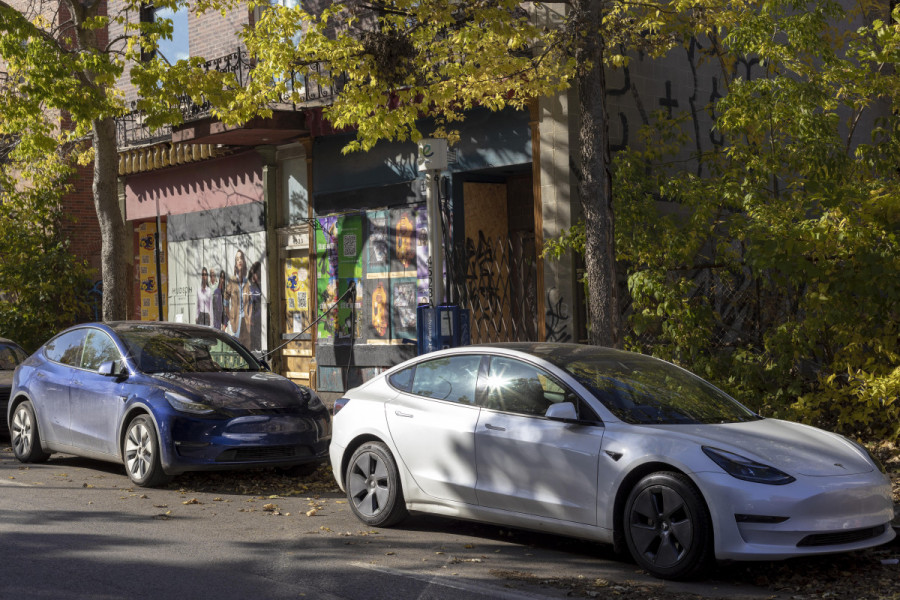Are Cars Becoming Useless in Montreal?
Citizens Push Saint-Henri Towards a Car-Free Future
Quebec is trying to get more electric vehicles on roads as new gasoline-powered vehicles will be prohibited by 2035. This ban will require a wider network of car chargers to answer the growing demand, but residents and politicians are questioning any kind of car use in Montreal.
“If you live in Montreal, you do not really need a car,” said Kerry Chambers, a Saint-Henri citizen who moved from Halifax in March 2022. With his wife Evelyn Keirstead, he owned a black electric Nissan Leaf SV for a year before selling it last August.
Three months after selling their car, the couple has no regrets. “I know the hassle of parking a car in the street,” said Kerry. He had to frequently move his vehicle because he lives in an apartment with no designated parking spot.
Saint-Henri residents have to obtain a parking sticker to park their car on the street, but things become more complicated during the winter, as parking is forbidden during snow clearing operations. This is one of the reasons why the couple purposefully sold their car before the cold season began.
Growing electrification
Newly reelected Premier François Legault promised in the 2022 elections to install 21,500 level-2 type chargers in Quebec before 2026. Depending on the vehicle type, these infrastructures allow car batteries to fully recharge in approximately eight hours.
Martin Archambault, spokesman for the advocacy group Quebec Electric Vehicle Association, thinks the government’s ambitions are “realistic” but that challenges remain.
Archambault explained that installing more level-2 chargers takes time because it requires consultation between many factions. According to him, the electric chargers are not profitable enough to attract private investments. “Quebec will be ready [for the ban] if the private sector embarks,” the spokesman insisted.
Archambault has been working in transport electrification for over ten years. He worries that, according to his figures, 40 per cent of Montrealers are allegedly unable to set up home chargers because they lack the necessary space at home.There are 27 car chargers in Saint-Henri, according to ChargeHub's data. This website catalogues charging points in Canada and the United States. The high concentration of chargers in this small area surprised the couple when they moved to Montreal.
“If you live in Montreal, you do not really need a car.” — Kerry Chambers
Evelyn and Kerry used to be what Archambault nicknamed “charger orphans”—electric car owners without their own charger. However, the couple did not have any complaints, stating that street chargers are “all over the place” in their neighbourhood.
“If we decided to go back to Nova Scotia, I would not buy an electric car again until they have more chargers,” Evelyn said.
Fewer cars, more public transit
“These infrastructures become similar to a gas station. They are public investments used to further the use of private vehicles,” Green Party of Quebec Leader Alex Tyrrell pointed out.
During the past provincial elections, the self-described ecosocialist politician ran in Notre-Dame-de-Grâce and advocated for free public transit to address climate change. “The party wants to reduce the number of cars on roads, whether it be electric or fossil fuel,” he said.
Could the Green’s wish become a reality in Saint-Henri? “We do not live in a unicorn world,” Archambault answered.
Still, the couple envision themselves living in a car-free future. “We have been trying to use our bicycles, the metro and walk,” explained Kerry, who now lives at a walking distance from Place-Saint-Henri metro station.
Whereas the couple claim that nothing has changed in their life, though they sometimes have to rent a car to go out of the city where public transit is yet to be expanded.
A mistake was made in Kerry Chambers's last name and has been since corrected. The Link regrets this error.







